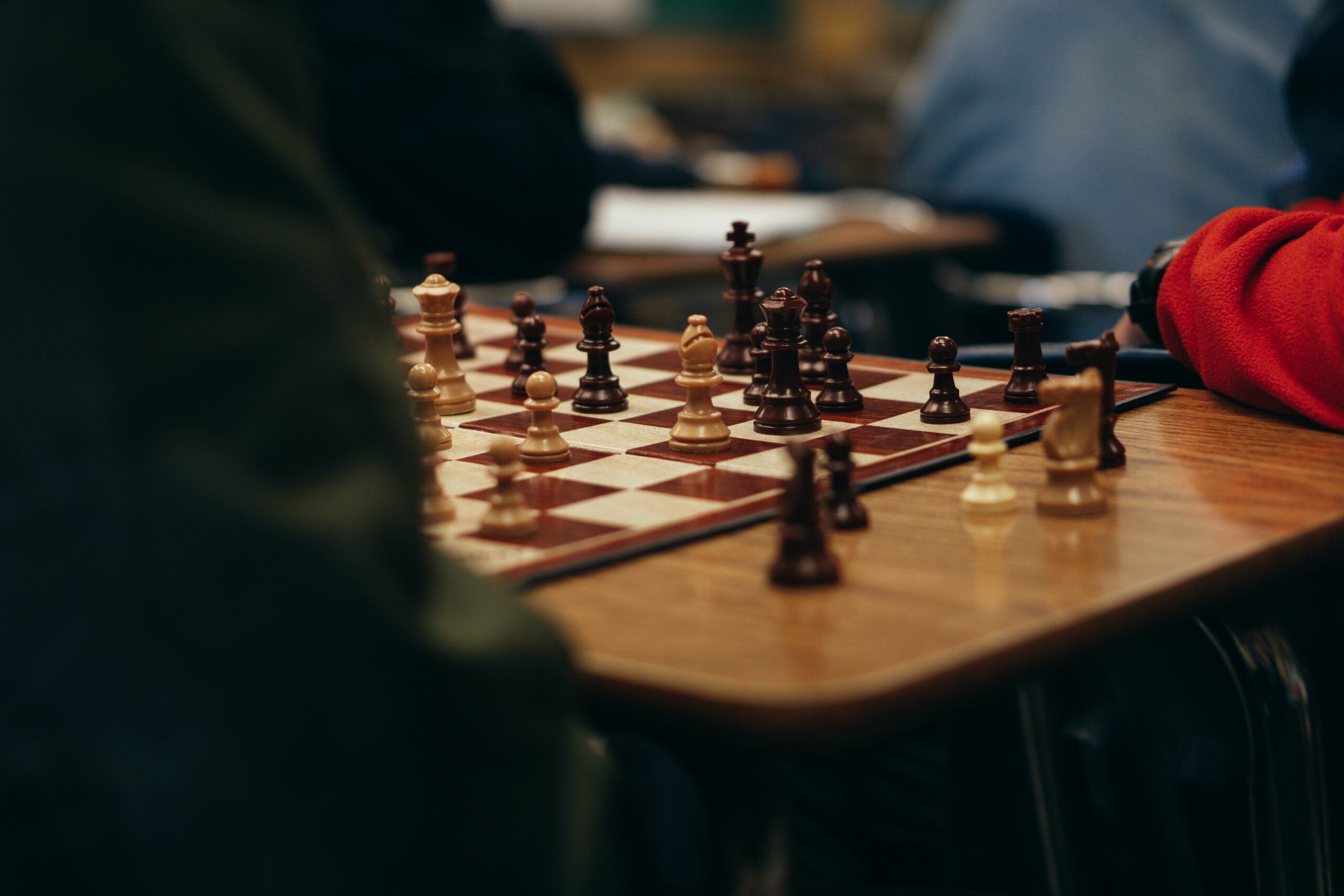Developing a strong chess opening repertoire is a crucial step towards improving your game and achieving success on the chessboard. It lays the foundation for the middle game, influences your strategic choices, and can give you a psychological advantage over your opponents.
In this comprehensive guide, we will explore the best strategies and practices for building a solid opening repertoire. Whether you are a beginner looking to establish a strong foundation or an intermediate player aiming to expand your repertoire, this article will provide you with valuable insights and practical tips to enhance your opening play.
How important is a solid opening repertoire?
Having a well-structured and comprehensive opening repertoire is essential for any chess player. It provides a framework for your game and enables you to make confident and informed decisions right from the start.
A solid repertoire helps you develop a deep understanding of various openings, their typical positions, and strategic ideas. It also allows you to anticipate your opponent’s moves and react effectively, giving you a competitive edge.
What are the essential elements of a good opening repertoire?
A good opening repertoire should be built on a few key principles. Firstly, it should include a mix of solid and aggressive openings to cater to different playing styles and situations. Secondly, it should be based on openings that you enjoy and understand deeply.
Thirdly, it should cover a variety of pawn structures and positional themes to enhance your overall understanding of chess. Lastly, it should be flexible and adaptable, allowing you to adjust your choices based on your opponent and the specific game situation.

How do I choose the right openings for my repertoire?
Choosing the right openings for your repertoire requires careful consideration. Start by assessing your playing style and preferences. Are you more comfortable with tactical or strategic positions? Do you enjoy aggressive or solid openings?
Next, analyze your games to identify the types of positions where you excel or struggle. Research and study various openings that align with your style and suit your strengths. It’s also helpful to consult books, online resources, and experienced players to gather insights and recommendations.
What is the best way to study and learn new openings?
Studying and learning new openings is a continuous process that involves a combination of theory and practice. Begin by understanding the basic principles, ideas, and common moves of the chosen opening. Dive into opening books, videos, and online tutorials to gain deeper knowledge and insights.
Analyze master games in your chosen openings to grasp strategic concepts and typical plans. Engage in practice games and tournament play to test your understanding and refine your repertoire. Regularly review and update your opening knowledge to stay up to date with the latest developments.
How do I analyze and evaluate openings for my repertoire?
Analyzing and evaluating openings for your repertoire requires a systematic approach. Start by playing the openings in practice games to gain firsthand experience and identify strengths and weaknesses. Analyze your games to understand where you could have made better opening choices or improvements.
Use computer engines and online databases to explore variations, assess move choices, and identify critical positions. Seek guidance from stronger players or coaches to receive feedback and insights on your opening play.
What are the benefits of playing diverse openings?

Incorporating diverse openings in your repertoire brings several advantages. Firstly, it enhances your overall chess understanding by exposing you to different pawn structures, tactical motifs, and strategic ideas. Secondly, it makes you less predictable and harder to prepare against, putting your opponents on the back foot.
Thirdly, it expands your flexibility and adaptability, enabling you to handle a wide range of positions with confidence. Finally, playing diverse openings can be intellectually stimulating and enjoyable, adding excitement and variety to your chess experience.
How can I balance flexibility and consistency in my repertoire?
Finding the right balance between flexibility and consistency in your repertoire is crucial. While it’s essential to have a core set of openings that you play consistently, it’s equally important to have the flexibility to deviate or switch to alternative lines based on the game situation.
Aim for a repertoire that provides a solid foundation while allowing room for creative and dynamic play. Regularly review and update your repertoire to strike the right balance and adapt to evolving chess trends and strategies.
What are the common mistakes to avoid when building an opening repertoire?
When building an opening repertoire, it’s important to avoid common pitfalls. One common mistake is blindly following the recommendations of others without understanding the underlying ideas and strategies. It’s crucial to invest time and effort into comprehending the positions and plans of the openings you choose.
Another mistake is neglecting the study of classical and historical games. Learning from the games of past masters can provide valuable insights and enrich your opening understanding. Additionally, it’s important to strike a balance between depth and breadth in your repertoire, focusing on quality rather than quantity.
How do I adapt my repertoire to different opponents and playing styles?
Adapting your repertoire to different opponents and playing styles is a skill that comes with experience and knowledge. Study your opponent’s games and openings to understand their preferences and tendencies. Identify their strengths and weaknesses, and tailor your choices accordingly.
For aggressive players, consider adopting solid and positionally sound openings to neutralize their attacking ambitions. Against more cautious opponents, you can choose sharper and more tactical openings to create imbalances and generate winning chances.
What are the recommended resources for studying openings?

Several resources are available to help you study openings effectively. Books on specific openings provide in-depth analysis, annotated games, and strategic insights. Online platforms offer a vast library of opening videos, tutorials, and interactive lessons.
Chess databases and engines allow you to explore opening variations, evaluate move choices, and analyze critical positions. Additionally, engaging with a chess coach or joining a chess club can provide personalized guidance, feedback, and opportunities to discuss and learn openings with fellow enthusiasts.
How can I stay updated with the latest opening theory?
Staying updated with the latest opening theory is essential to ensure that your repertoire remains relevant and effective. One effective way is to follow top-level chess tournaments and analyze the games of grandmasters. Pay attention to the openings they choose and the novelties they introduce.
Stay connected with online chess communities and forums where players discuss and share insights on the latest opening trends. Utilize chess databases and engines to explore new variations and evaluate their viability.
Additionally, consider subscribing to chess magazines or online publications that provide regular updates on opening theory and analysis. By staying proactive and engaging with the chess community, you can stay at the forefront of opening knowledge.
How can I improve my opening preparation?
Improving your opening preparation requires a systematic approach. Start by organizing your opening repertoire and categorizing it based on different pawn structures or strategic themes. Develop a deep understanding of the typical middlegame plans associated with your chosen openings.
Study annotated games of strong players to grasp the key ideas and nuances. Use chess databases to explore variations, evaluate move choices, and analyze critical positions.
Engage in regular practice games and tournament play to test your preparation and identify areas for improvement. Seek feedback from stronger players or coaches to refine your opening understanding and make necessary adjustments.
Should I prioritize memorization or understanding in openings?
| Aspect | Memorization | Understanding |
|---|---|---|
| Long-term benefit | Provides immediate move recall | Builds a strong foundation for decision-making |
| Adaptability | May struggle when facing unexpected moves | Enables flexible responses to various positions |
| Creativity | Less room for improvisation | Encourages creative and original ideas |
| Learning curve | Requires dedicated time for memorization | Demands continuous learning and improvement |
| Practicality | Ideal for time-limited games or specific lines | Provides a solid understanding across positions |
While memorization is important to have a strong opening repertoire, understanding should be prioritized over blind memorization. Focus on comprehending the underlying ideas, strategic concepts, and typical plans associated with your openings. Understanding the key principles and pawn structures will allow you to make logical and informed decisions even in unfamiliar positions.
Memorization should supplement your understanding by helping you recall critical lines and moves. By striking a balance between memorization and understanding, you will develop a deeper appreciation for the nuances of the openings and be better equipped to handle various scenarios on the board.
How can I handle unexpected deviations from my opponent? Dealing with unexpected deviations from your opponent requires adaptability and resourcefulness. Instead of getting flustered, use these deviations as an opportunity to showcase your understanding of the underlying ideas and principles of your opening repertoire.
Stay flexible and be ready to switch to alternative lines or transpose to related openings. Analyze the new position objectively and make moves based on the principles of development, piece activity, and pawn structure.
Keep a calm and focused mindset, and trust in your opening knowledge and understanding. By handling unexpected deviations with confidence, you can turn them into advantageous positions.
How can I assess the success of my opening repertoire?
Assessing the success of your opening repertoire involves analyzing your performance and results in practical games. Review your games and identify the moments where your opening choices led to advantageous positions or resulted in difficulties.
Consider the win-loss ratio and the level of comfort you feel in your chosen openings. Seek feedback from stronger players or coaches to gain insights into the strengths and weaknesses of your repertoire.
Additionally, take note of the positions where you feel uncertain or uncomfortable and dedicate time to studying and improving those areas. Continuous evaluation and adjustment are essential to ensure the long-term success of your opening repertoire.
In Summary
Building a strong and effective chess opening repertoire is a crucial step toward improving your overall game. It requires careful selection, study, and practice. By developing a well-structured repertoire, you gain a solid foundation, enhance your strategic understanding, and become a more versatile player.
Remember to balance between flexibility and consistency, adapt to different opponents and playing styles, and regularly update your knowledge. With the right approach and dedication, you can master chess openings and unlock new levels of success on the chessboard.




